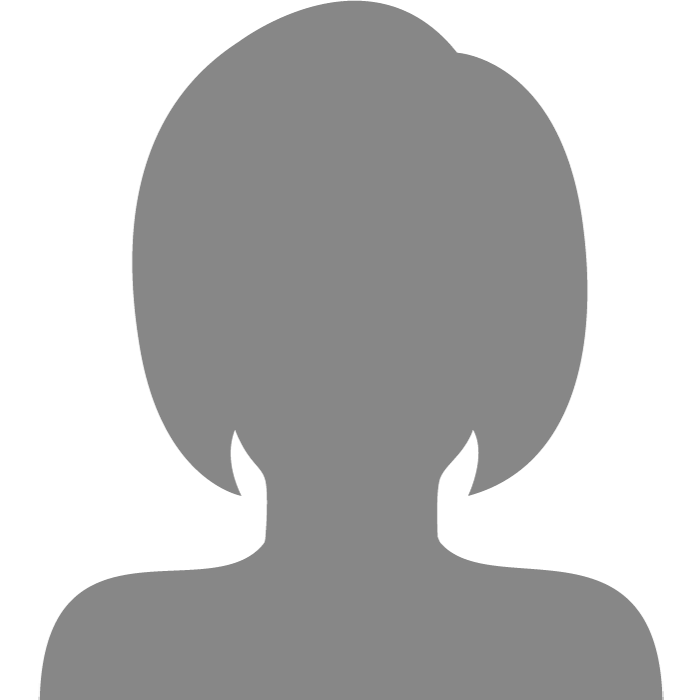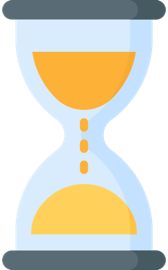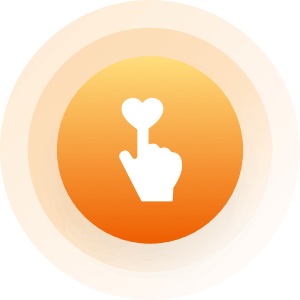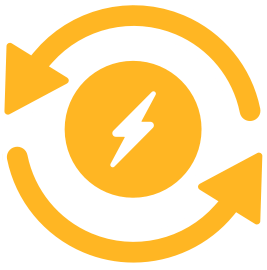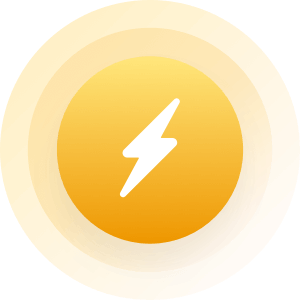| Topic: AP IMPACT: Alternative medicine goes mainstream | |
|---|---|
|
By MARILYNN MARCHIONE, AP Medical Writer Marilynn Marchione, Ap Medical Writer – 1 hr 34 mins ago
BALTIMORE – At one of the nation's top trauma hospitals, a nurse circles a patient's bed, humming and waving her arms as if shooing evil spirits. Another woman rubs a quartz bowl with a wand, making tunes that mix with the beeping monitors and hissing respirator keeping the man alive. They are doing Reiki therapy, which claims to heal through invisible energy fields. The anesthesia chief, Dr. Richard Dutton, calls it "mystical mumbo jumbo." Still, he's a fan. "It's self-hypnosis" that can help patients relax, he said. "If you tell yourself you have less pain, you actually do have less pain." Alternative medicine has become mainstream. It is finding wider acceptance by doctors, insurers and hospitals like the shock trauma center at the University of Maryland Medical Center. Consumer spending on it in some cases rivals that of traditional health care. People turn to unconventional therapies and herbal remedies for everything from hot flashes and trouble sleeping to cancer and heart disease. They crave more "care" in their health care. They distrust drug companies and the government. They want natural, safer remedies. But often, that is not what they get. Government actions and powerful interest groups have left consumers vulnerable to flawed products and misleading marketing. Dietary supplements do not have to be proved safe or effective before they can be sold. Some contain natural things you might not want, such as lead and arsenic. Some interfere with other things you may be taking, such as birth control pills. "Herbals are medicines," with good and bad effects, said Bruce Silverglade of the consumer group Center for Science in the Public Interest. Contrary to their little-guy image, many of these products are made by big businesses. Ingredients and their countries of origin are a mystery to consumers. They are marketed in ways that manipulate emotions, just like ads for hot cars and cool clothes. Some make claims that average people can't parse as proof of effectiveness or blather, like "restores cell-to-cell communication." Even therapies that may help certain conditions, such as acupuncture, are being touted for uses beyond their evidence. An Associated Press review of dozens of studies and interviews with more than 100 sources found an underground medical system operating in plain sight, with a different standard than the rest of medical care, and millions of people using it on blind faith. How did things get this way? Fifteen years ago, Congress decided to allow dietary and herbal supplements to be sold without federal Food and Drug Administration approval. The number of products soared, from about 4,000 then to well over 40,000 now. Ten years ago, Congress created a new federal agency to study supplements and unconventional therapies. But more than $2.5 billion of tax-financed research has not found any cures or major treatment advances, aside from certain uses for acupuncture and ginger for chemotherapy-related nausea. If anything, evidence has mounted that many of these pills and therapies lack value. Yet they are finding ever-wider use: _Big hospitals and clinics increasingly offer alternative therapies. Many just offer stress reducers like meditation, yoga and massage. But some offer treatments with little or no scientific basis, to patients who are emotionally vulnerable and gravely ill. The Baltimore hospital, for example, is not charging for Reiki but wants to if it can be shown to help. Other hospitals earn fees from treatments such as acupuncture, which insurance does not always cover if the purpose is not sufficiently proven. The giant HMO Kaiser Permanente pays for members to go to a Portland, Ore., doctor who prescribes ayurvedics — traditional herbal remedies from India. _Some medical schools are teaching future doctors about alternative medicine, sometimes with federal grants. The goal is educating them about what patients are using so they can give evidence-based, nonjudgmental care. But some schools have ties to alternative medicine practitioners and advocates. A University of Minnesota program lets students study nontraditional healing methods at a center in Hawaii supported by a philanthropist fan of such care, though students pay their own travel and living expenses. A private foundation that wants wider inclusion of nontraditional methods sponsors fellowships for hands-on experience at the University of Arizona's Program in Integrative Medicine, headed by well-known advocate Dr. Andrew Weil. _Health insurers are cutting deals to let alternative medicine providers market supplements and services directly to members. At least one insurer promotes these to members with a discount, perhaps leaving an incorrect impression they are covered services and medically sound. Some insurers steer patients to Internet sellers of supplements, even though patients must pay for these out of pocket. There are networks of alternative medicine providers that contract with big employers, just like HMOs. A few herbal supplements can directly threaten health. A surprising number do not supply what their labels claim, contain potentially harmful substances like lead, or are laced with hidden versions of prescription drugs. "In testing, one out of four supplements has a problem," said Dr. Tod Cooperman, president of ConsumerLab.com, an independent company that rates such products. Even when the ingredients aren't risky, spending money for a product with no proven benefit is no small harm when the economy is bad and people can't afford health insurance or healthy food. But sometimes the cost is far greater. Cancer patients can lose their only chance of beating the disease by gambling on unproven treatments. People with clogged arteries can suffer a heart attack. Children can be harmed by unproven therapies forced on them by parents who distrust conventional medicine. Mainstream medicine and prescription drugs have problems, too. Popular drugs such as the painkillers Vioxx and Bextra have been pulled from the market after serious side effects emerged once they were widely used by consumers. But at least there are regulatory systems, guideline-setting groups and watchdog agencies helping to keep traditional medicine in line. The safety net for alternative medicine is far flimsier. The latest government survey shows the magnitude of risk: More than a third of Americans use unconventional therapies, including acupuncture, homeopathy, chiropractic, and native or traditional healing methods. These practitioners are largely self-policing, with their own schools and accreditation groups. Some states license certain types, like acupuncturists; others do not. Tens of millions of Americans take dietary supplements — vitamins, minerals and herbs, ranging from ginseng and selenium to fish oil and zinc, said Steven Mister, president of the Council for Responsible Nutrition, an industry trade group. "We bristle when people talk about us as if we're just fringe," he said. Supplements are "an insurance policy" if someone doesn't always eat right, he said. In fact, some are widely recommended by doctors — prenatal vitamins for pregnant women, calcium for older women at risk of osteoporosis, and fish oil for some heart patients, for example. These uses are generally thought to be safe, although independent testing has found quality problems and occasional safety concerns with specific products, such as too much or too little of a vitamin. http://news.yahoo.com/s/ap/20090608/ap_on_he_me/us_med_unproven_remedies ********************************************************************* it's a long story....I'll be nice and not post it all but give the link 
it did remind me of the thread about the child with Hodgkin's |
|
|
|
|
|
I don't know the numbers on how many people believe in it but there are cases where it works. So how can you deny it.
|
|
|
|
|
|
I try to do what I can without modern medicine...but I do know there are times for modern medicine. I just don't want surgeries or meds if I can do things naturally
|
|
|
|
|
|
I try to do what I can without modern medicine...but I do know there are times for modern medicine. I just don't want surgeries or meds if I can do things naturally 
|
|
|
|
|
|
I've noticed, unhealthy lifestyle is always the culprit.
Not eating right, not eating the right food, lack of exercise, bad habits, stress, lack of sleep are the major causers almost all the time. Eating frozen and various canned food loaded with preservatives, bought in Walmart or Stop&Shop instead of McDonald's does not mean you are eating healthier. Running for an hour on the treadmill in the early morning, but eating a pizza at 10pm at the same night does not mean you are living a healthier lifestyle either. Being in stress all day and not sleeping enough advances the chance of heart problems, chronic high blood pressure, acid reflux disease and in certain cases - development of a cancer. (I have heard this from a doctor!) While there are certainly good herbs out there and good alternative therapies to help and cure certain diseases, it doesn't apply for everything. Neither falling for the commercials to buy various medicines for problems, that are not even a medical condition to begin with, or the root of the problem is the person's lifestyle and not curable by pills and yet people buy expensive stuff for "stress" or refuse to believe others to stop drinking orange juice in the morning and your acid reflux disease would go away , but instead ends up buying medicine that costs 20-30 bucks and nobody even knows whether if the so called medicine has any nasty side effects! |
|
|
|
|
|
there are some things not about lifestyle..alergies....blood diseases...
|
|
|
|
|
|
there are some things not about lifestyle..alergies....blood diseases... Right and no matter how hard they try to prove it, not all diseases are caused from life style. I utilize natural alternatives for what I can in my health regiment but I cannot solve everything that way. My heredity has blessed me with health problems that cannot be completely solved by natural or life style changes. |
|
|
|
|
|
there are some things not about lifestyle..alergies....blood diseases... Right and no matter how hard they try to prove it, not all diseases are caused from life style. I utilize natural alternatives for what I can in my health regiment but I cannot solve everything that way. My heredity has blessed me with health problems that cannot be completely solved by natural or life style changes. my sister and I have the same hereditary blood disease...she takes the same meds they give 3rd degree burn victims for pain. I have gotten her to try hot baths with salts and relaxing things, etc....it seems to help and doesn't require the meds as often. I have allergies as well...at times I need Benedryl...other times I try steam, etc. IMO there is a time and place for everything...but I personally try natural before modern |
|
|
|
|
|
there are some things not about lifestyle..alergies....blood diseases... Of course, i'm not saying unealthy lifestyle is always the case, that's why I said "majority", so basically most or many cases. Unfortunately genetics and heredity medical problems are cruel and unfair and it's even more cruel not getting any help for it or charging an arm and leg for medicine and treatement for it. 
|
|
|
|
|
|
I pay about $2000 a month for dialysis
medicare picks up most of that and the Kidney Foundation funds secondary insurance for the remainder I've had people tell me to try certain herbs in lieu of dialysis but I prefer not to experiment and die if they are wrong |
|
|
|
|
|
I pay about $2000 a month for dialysis medicare picks up most of that and the Kidney Foundation funds secondary insurance for the remainder I've had people tell me to try certain herbs in lieu of dialysis but I prefer not to experiment and die if they are wrong my sister has to do dialysis as well. And I know some herbs effect her badly. I (luckily) can be the guinea pig for the 2 of us. |
|
|
|
|
|
Edited by
yellowrose10
on
Sun 06/07/09 07:56 PM
|
|
|
double post

|
|
|
|
|
|
I pay about $2000 a month for dialysis That's insane.  What a sh..ty healthcare system we got. What a sh..ty healthcare system we got.
|
|
|
|
|
|
Dawn can't even get on her hubby's insurance because of her condition and private insurance is too expensive. so what Medicare doesn't cover....the family helps out
|
|
|
|
|
|
I pay about $2000 a month for dialysis medicare picks up most of that and the Kidney Foundation funds secondary insurance for the remainder I've had people tell me to try certain herbs in lieu of dialysis but I prefer not to experiment and die if they are wrong i can see that but yo could use the herbs and let the medical personnel let you know if they are helping by continuing with the medical treatment till/if they tell you it is no longer needed play both fields but hey what do i know |
|
|
|
|
|
I don't know the numbers on how many people believe in it but there are cases where it works. So how can you deny it. I agree. Personally whatever you tell yourself has an affect. Whatever you believe has an affect. If you believe humming and shaking of the hands will calm you or heal you, or prayer, then I think it has to do more with the mind than what you are actually doing. If that makes any sense. I can't stand ritual, but if it works for someone else who the heck am I to poo poo it. I think it's time to consider that even the alternative's industry is not beyond using the same tactics as the drug companies to get new customers. It's a drag that even the alternative health community is out for the buck more than to really help people. I think part of the propaganda of the drug companies is to make you think that alternatives are dangerous. But hell their stuff is dangerous, so it's up to us as consumers to keep up on everything. UGH We want the FDA to approve alternative stuff now? HAHA, as if we trust them to get anything done. There are things we should have the right to use that we can't because of them, and their connections. Some stuff on the market is so stupid I can't believe anyone would buy the stuff, so I don't know whether we have much choice if we want things available at reasonable prices. |
|
|
|
|
|
there are some things not about lifestyle..alergies....blood diseases... Of course, i'm not saying unealthy lifestyle is always the case, that's why I said "majority", so basically most or many cases. Unfortunately genetics and heredity medical problems are cruel and unfair and it's even more cruel not getting any help for it or charging an arm and leg for medicine and treatement for it. 
I think that is what ticks me off the most is the cost of meds people need. Yaya, let me again hear the excuses why they need to be that high... better yet I don't want to hear it.. grin |
|
|
|
|






